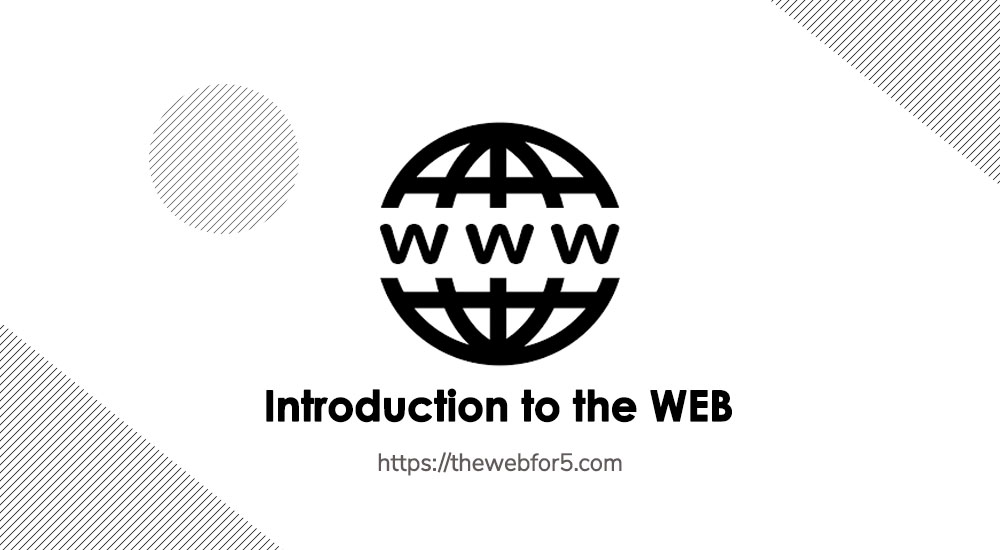Introduction to the web
December 19th, 2019

Table of Contents
- The Web
- What is a website?
- Web servers and Web clients
- Types of Websites - Static and Dynamic
- Kinds of websites
- Conclusion
The Web
The web is a general term for the World Wide Web (WWW). It is often referred to as the internet but they are different. The internet houses all servers which makes various informations possible while the web is just one part (though the biggest) of the internet.
The web can be likened to a restaurant which consists of websites containing numerous web pages (food itmes). A customer goes into the restaurant, requests for food or drink he wants and makes use of it (eats it).
What is a website?
This contains numerous related web pages. It is different from a web page such that web pages constitute the website. For example, TheWebFor5 is a website while all pages from the homepage (which is the resulting page from entering the website) to the about are the web pages.
Web pages are formatted in a language which is called HyperText Markup Language (HTML). This language defines the contents of the web page such as links, images, texts and so much more.
Web servers and Web clients
Web servers holds these pages while web clients (similar to the customer of the restaurant) requests for these pages. The request has to be detailed (e.g including the name of the page) for the web to respond with the right webpage. Imagine to going to a restaurant and just saying you want food. Yeah, odd!
Web clients are generally web browsers which are applications used to access websites. Examples include Google Chrome, Mozilla Firefox, Microsoft Edge and so on.
To know how browsers work, check out this article - How does browsers work?. To know how a website contents are fetched, check out this article - How contents are fetch from a website through the URL
Types of Websites
Static Websites
This is one which is usually written in plain HyperText Markup Language (HTML). The contents of the web pages are exactly what is written in the code.
One major benefit of this type of sites is that you can make web pages different because they are designed individually.
This also brings about a major problem; when a new page is to be added, the web developer would have to design a new page entirely.
Dynamic Websites
This is one which is usually written using a server-side scripting language commonly called back-end languages. Here, the contents are pulled by these languages from a different source which could be a database or from another website.
One major benefit of this type of sites is that new pages can be easily generated, manipulated or destroyed as the source which the contents are pulled from is edited.
This also results in a major problem where all pages are similar. Difficulty comes in when trying to make pages getting data from a source to work differently.
Kinds of websites
Note that one website can be many kinds at the same time.
- Blog: a website which contains related written articles about different subjects (e.g this website).
- Search Engine: a website which can be used to search for web pages on the web (e.g Google).
- School Website: a website which manages the informations about a school. Some of them also help students manage their personal informations (such as results and payments).
- Social network website: a website which allows users to communicate easily through messages of text, images or videos (e.g Twitter). ...and so much more.
Conclusion
This is basically what the web is about. However, there are more informations about the web. Watch out for more articles on this website so as to learn more.
